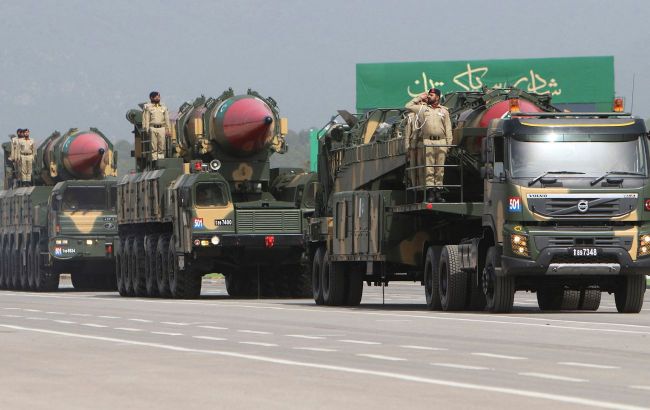Water or war? Pakistan issues ultimatum to India

Pakistan has threatened India with war after its decision to withdraw from the historic Indus Waters Treaty. The agreement, which has lasted for over 60 years, guaranteed the distribution of river waters between the two nuclear-armed countries, The Times of India reports.
The situation escalated after India announced its withdrawal from the Indus Waters Treaty, a document signed in 1960 that remained in effect even during the most intense conflicts between the two nations.
The treaty regulated the distribution of water from rivers flowing from Kashmir, allowing Pakistan access to its primary water source, the Indus River, as well as the Jhelum and Chenab rivers.
Unrest in Kashmir
On Tuesday, April 22, the militants from a little-known group, the Resistance Front, killed 25 people - one Nepali citizen and 24 Indian tourists. In response, Indian authorities accused Pakistan of supporting the terrorists, although Islamabad denied the allegations.
According to media reports, Pakistan's Defense Minister stated that his country was not involved in the attack. He called the situation in Kashmir a "ocal uprising.
However, India quickly took concrete actions, including:
-
Closing the border crossing in the region,
-
Revoking issued visas,
-
Limiting new visa issuances,
-
Expelling Pakistani diplomats.
The culmination was India's announcement of its withdrawal from the Indus Waters Treaty, meaning that India is no longer obligated to ensure the uninterrupted flow of water to Pakistan.
Water distribution between countries
The Indus Waters Treaty remained in force during two Indo-Pakistani wars in 1965 and 1971, the Siachen Glacier conflict from 1984 to 2003, and the Kargil war in 1999.
According to the treaty, rivers originating in Kashmir were divided between India and Pakistan equally: the Jhelum, Chenab, and, most importantly, the Indus, were assigned to Pakistan, preventing India from obstructing their courses, while India retained control of the Ravi, Sutlej, and Beas rivers.
For Pakistan, the Indus is the main source of water, allowing the irrigation of 12 million hectares of land with a total irrigation network length of 65,000 km.
However, New Delhi has long complained that it requires more water, as the three Indian rivers have a much smaller volume - only 20% compared to 80% for the rivers under Pakistan's control.
Pakistan threatens war over water
In response to India's actions, Pakistan, today, April 24, not only mirrored India's decisions, closing a border post in Kashmir, expelling diplomats, giving all Indian citizens 48 hours to leave the country, and restricting and canceling departures, but also closed its airspace to all Indian airlines and banned trade between the two nations, even through third countries.
A government statement said that any attempt to stop or divert the flow of water that belongs to Pakistan under the Indus Waters Treaty will be considered an act of war.
Furthermore, Islamabad reserved the right to suspend the Simla Agreement of 1972, which settled the aftermath of the 1971 war, with India retaining a small part of the captured territory (13,000 sq km was returned, 883 sq km remained occupied), and Pakistan's recognition of Bangladesh.
According to media reports, Pakistan is putting its military on full alert to counter any actions from India.
It should be noted that both countries possess nuclear weapons: India has had them since 1974, and Pakistan since 1998.
Militants open fire on a tourist group in India
On April 23, it was reported that militants in the Indian province of Kashmir attacked tourists in the mountainous region, killing at least twenty people.
Ukraine responded to the tragedy, condemning the violence. More details on the situation and Kyiv's response can be found in the material by RBC-Ukraine.

